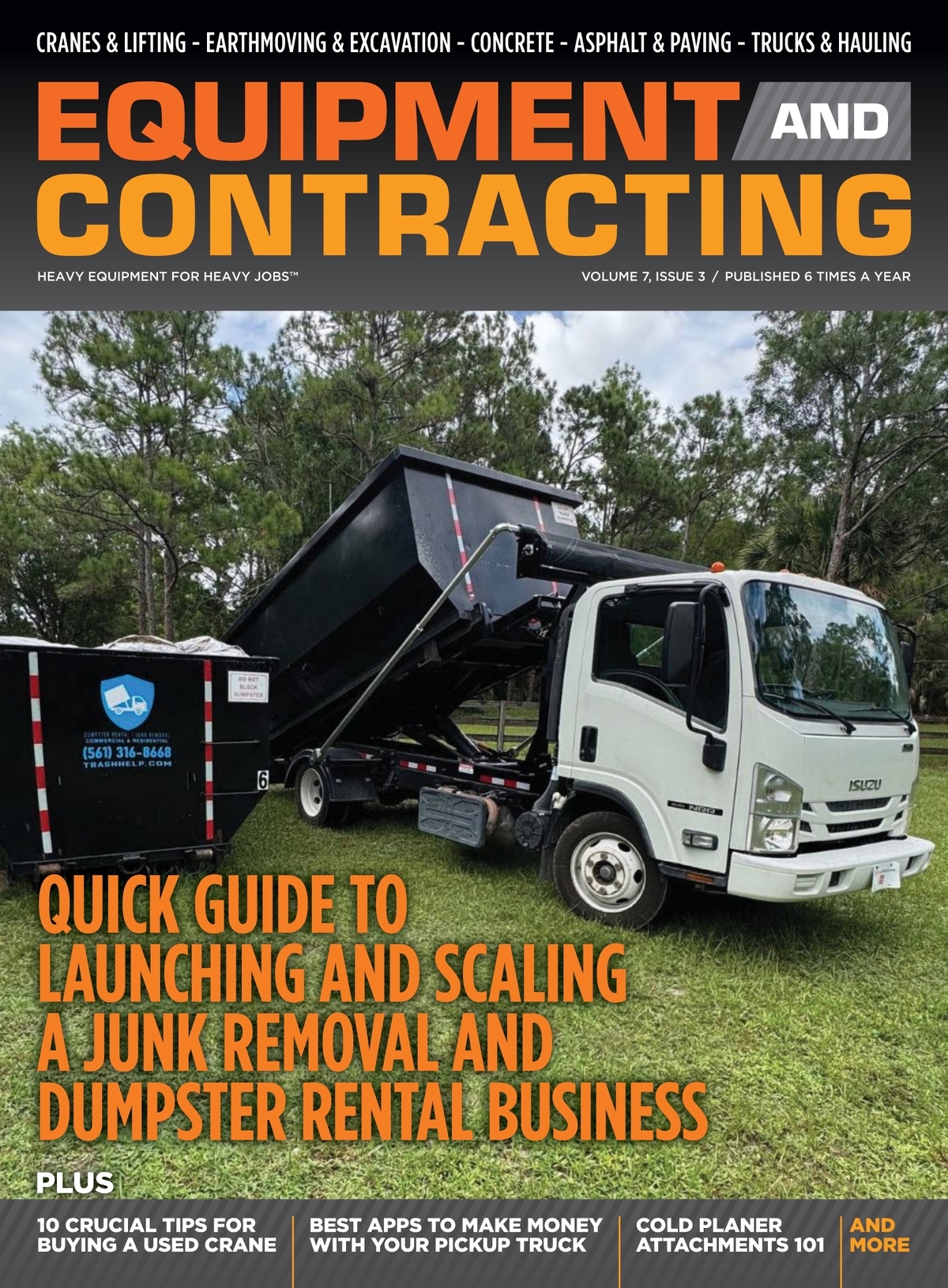
The all-electric Volvo VNR model, which will be used by the dealership for local parts distribution, is the first pilot truck to deploy as part of the Volvo LIGHTS project.
Volvo Trucks North America has deployed its first pilot VNR Electric truck in Southern California as part of the Volvo LIGHTS (Low Impact Green Heavy Transport Solutions) project-an innovative collaboration with the South Coast Air Quality Management District (South Coast AQMD) and 13 other organizations to develop a blueprint to successfully introduce battery-electric trucks and equipment into the market at scale.
The first pilot Volvo VNR Electric truck will operate at the Volvo Trucks North America TEC Equipment dealership in Fontana, California. The zero-emission truck will transport local parts between the TEC Equipment dealerships in Fontana and La Mirada.
“Volvo Trucks is proud to lead the way in the sustainable electrification of freight movement. Working with our dealership, TEC Equipment, to pilot the first Volvo VNR Electric on the road and in real-world applications is an exciting step toward our plans to commercialize these zero-emission trucks in North America this fall,” said Peter Voorhoeve, president of Volvo Trucks North America. “The all-electric Volvo VNR will become the ideal truck model for short- and regional-haul applications, such as urban distribution and drayage.”
The TEC Fontana dealership has two 50 kW chargers inside their truck maintenance bays, as well as a 150 kW charger located outside to enable fleet customers to fast charge at the dealership. Over the past year, the Volvo LIGHTS team worked with Southern California Edison (the local utility) and San Bernardino County (Authority Having Jurisdiction, or AHJ) to safely install the high-power infrastructure.
“This experience in designing, planning, and installing high-power chargers for electric trucks has taught us how critical it is to engage a variety of stakeholders early on,” said Aravind Kailas, advanced technology policy director for Volvo Group North America. “The Volvo LIGHTS project has provided valuable insight into how to build realistic project timelines. Despite the unavoidable delays due to the COVID-19 situation, we’re proud the team has been able to continue moving the project forward.”
Starting in 2021, Southern California businesses will have the opportunity to lease Volvo VNR Electric trucks from TEC Equipment to gain firsthand experience with these advanced trucks in their fleet operations.
“Everyone on my team that has had an opportunity to drive the Volvo VNR Electric has been surprised by how smooth the truck operates,” said Mike Reardon, general manager of TEC Equipment’s Fontana dealership. “Our parts delivery driver loves taking it out, saying it is very quiet and comfortable in the cab and has great power at take-off.”
TEC’s Fontana team will be fully trained and equipped to safely perform maintenance for its fleet customers. In addition to being outfitted with personal protective equipment (PPE) for working with high voltage, the technicians have been trained on the proper procedure to isolate the high voltage for diagnosis and service repairs.
“We are proud that our Fontana dealership will be first in in North America to pilot the Volvo VNR Electric model,” said Dave Thompson, president and CEO of TEC Equipment. “Through the Volvo LIGHTS project, we are gaining valuable hands-on experience for our drivers and maintenance staff to ensure that we are well prepared to support the widescale deployment of these advanced, zero-emission trucks throughout the Southern California freight corridor.”
As part of the Volvo LIGHTS project, two local fleet operators—NFI Industries and Dependable Supply Chain Services—will also begin demonstrating the pilot Volvo VNR Electric trucks for full operations in their regional routes later this summer.
The Volvo LIGHTS project was made possible by an award to South Coast AQMD of $44.8 million from CARB as part of California Climate Investments (CCI). CCI is a statewide initiative that puts billions of Cap-and-Trade dollars to work reducing greenhouse gas emissions, strengthening the economy and improving public health and the environment – particularly in disadvantaged communities.
As a result, South Coast AQMD contributed $4 million from the Clean Fuels Fund and awarded a $45.6M contract to the Volvo Group to design and implement the project. Volvo and its partners have promised no less than $45.7M matching contribution to increase the total project value to over $91M for South Coast AQMD to administer.
“Residents in communities across Southern California, and particularly in San Bernardino County are affected by air pollution as a result of trucks transporting goods throughout the state,” said Wayne Nastri, South Coast AQMD’s Executive Officer. “We are excited to see this first all-electric truck on the roads and hope that this is just the first of many zero-emission technologies deployed to reduce air pollution locally.”
“Volvo has enthusiastically embraced the challenge of deploying, supporting and promoting these state-of-the-art vehicles, which will not only provide significant fuel savings but will also benefit communities along transport corridors,” said Sydney Vergis, Assistant Chief of CARB’s Mobile Source Division. “These quiet, zero-emission vehicles are a big step in the right direction on a path toward cleaner air and a better quality of life.”
The Volvo LIGHTS team also includes partnerships with Rio Hondo College and San Bernardino Valley College (SBVC) to create electric vehicle repair and service technician programs to prepare the region’s workforce for the introduction of battery-electric freight trucks. The colleges have already begun introducing the curriculum in the classroom and enrolling students for the fall.
“The Rio Hondo College Automotive Technology Program will enable students to earn a degree specific to heavy-duty, battery-electric truck maintenance to promote the region’s workforce development,” said John Frala, professor and coordinator of alternative fuels and electric vehicles at Rio Hondo College. “The programs being designed at Rio Hondo and SBVC through the Volvo LIGHTS project are critical to sustain this project long after the initial trucks have hit the roads.”
Rio Hondo and SBVC are also working with the Volvo LIGHTS team to design a training program with fire departments within the Inland Empire communities—including San Bernardino County (which covers the TEC Fontana dealership), Chino and Ontario—to ensure that the region’s first responders are fully prepared to safely respond in case of an incident or accident involving a heavy-duty battery-electric vehicle (HD BEV).
For insight into how the project is helping Southern California support the widescale deployment of battery-electric trucks and charging infrastructure, join the Volvo LIGHTS project team for the 2020 Inland Empire Regional Mobility Dialogue Series, “Getting Ready for Electric Commercial Fleets.” The event, taking place online on June 23 from 8:00 a.m. to 10:00 a.m. PT, is hosted by the Leonard Transportation Center at California State University San Bernardino. Registration is complimentary. To register, visit https://bit.ly/RMDS-Jun23.











































